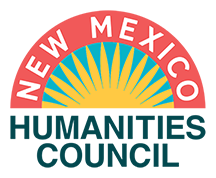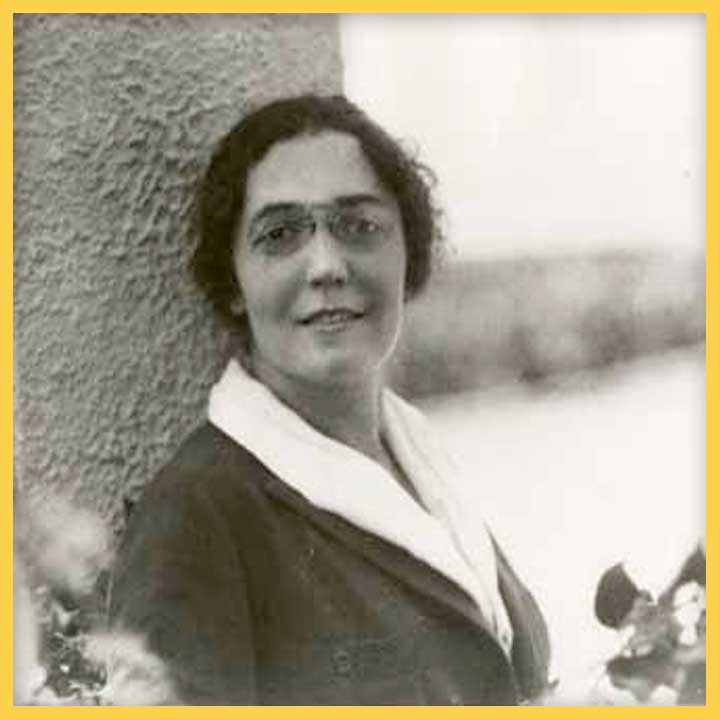
SUFRAGISTA Y MÁS: ADELINA "NINA" OTERO-WARREN
Nuevomexicana Adelina ‘Nina’ Otero-Warren (1881-1965) is one of the outstanding early feminist figures in United States history and an actor for representation and democracy in early 20th century New Mexico.
PHOTO CAPTION: Image Courtesy Palace of the Governors Photo Archives, New Mexico History Museum, Santa Fe, New Mexico; Accessed through the New Mexico Digital Repository.
SHARE:
Nuevomexicana Adelina “Nina” Otero-Warren (1881-1965) is one of the outstanding early feminist figures in United States history and an actor for representation and democracy in early 20th century New Mexico. Otero-Warren’s bilingual voice spoke for the largely Spanish speaking nuevomexicano population across genders in governmental and social affairs over decades. Indeed, her advocacy for women’s right to vote in New Mexico has been highlighted through the 2020 suffrage centenary, including recent publications on the fundamental role of women of color in shaping the U.S. suffrage movement. As a sufragista, Otero-Warren coordinated efforts with national organizations, including the National American Woman Suffrage Association and the Congressional Union to lobby members of the (relatively new) New Mexico state government to ratify the 19th Amendment. Without Otero-Warren’s ability not only to speak Spanish, but more importantly to connect with elected leaders and community culturally, the democratic interests of nuevomexicanas — guaranteeing them the fundamental right to participation in the United States democracy — might not have been realized. Otero-Warren’s role as a vital cultural communicator and tireless campaigner who contributed to New Mexico becoming the 32nd state to ratify the 19th Amendment will be commemorated this year through a quarter with her likeness issued by the U.S. Mint (part of the American Women Quarters Program), recognizing important women in United States history.
A powerful voice for opening democracy’s doors to diverse participation, Otero-Warren’s political activities to secure legal rights for the nuevomexicano communities she represented were ongoing. On Jan. 20, 1920, The Carlsbad Current newspaper noted that Otero-Warren’s work had been central in “raising of the age of consent, the repeal of the act which permitted the husband to dispose of community real estate without the consent of the wife, the creation of juvenile courts, the act providing for the care of dependent and neglected children, the creation of the Child Welfare and Girl’s [sic] Welfare boards.” Otero-Warren’s lobbying efforts to see the needs of nuevomexicano populations—especially of disenfranchised and impoverished groups—addressed through laws and policy were effective: su voz amplificó esas necesidades y realizó su resolución a través de mecanismos democráticos.
Shortly after the 1921 passage of an amendment to the New Mexico State Constitution authorizing women to hold public office Otero-Warren ran for a seat in the U.S. House of Representatives, becoming the first Latina to run for federal office. Her platform, shared in Spanish– and English-language newspapers, promised to advance the well-being of groups for whom she had long advocated. Her candidate statement, published Aug. 25 in La revista de Taos pledged to “progresar en materias de educación y en materias de salud y en el bienestar de la niñez,” and to seek out more rigorous child labor laws “para hacer efectiva la legislación de la labor de los niños.” Otero-Warren pledged to protect the interests of nuevomexicano farmers and ranchers, on whose lands and mercedes (such as that of her father Manuel B. Otero) land thieves had preyed. She did not win the office, but the support she received from nuevomexicanos crossed political party lines as she represented the interests of their community. Her candidacy was supported in much of the Spanish press, as in a poem by journalist and editor Felipe M. Chacón, who noted that her election could only reflect well on New Mexico: “Cubrirá Nuevo México de Gloria/Poniendo una mujer en el Congreso.”
Otero-Warren continued to speak through her many elected and civic roles (including Superintendent of Schools in Santa Fe and head of several Works Progress Administration initiatives), representing nuevomexicano populations through the policies she shaped and the articulations she cultivated among, community, leadership, and governance. Through her work with the WPA, she created to curricula to advance bilingual education for nuevomexicano adults and her familiarity with complex political issues informed even her own writing. Through her sole book publication, Old Spain in Our Southwest (1936), she corrected misinformed, ill-intentioned or simply erroneous information about New Mexico and its Indo-Hispano citizenry and created a record of nuevomexicano cultural, religious, and social practices.
In New Mexico, Nina Otero-Warren continues to be remembered in public spaces through a state historical marker in Los Lunas, N.M., near her birthplace, part of the Historical Women Marker Initiative sponsored by the New Mexico Historic Preservation Division. A mural in downtown Albuquerque draws the eyes of pedestrians and drivers alike to her advocacy for women’s suffrage. Nina Otero-Warren experienced New Mexico’s transition from 19th century territory to 20th century state from the very front row, and chose to engage as an activist, political candidate, and author in that extraordinary milieu. Through her political, democratic advocacy on behalf of her communities, we are afforded a 21st century view into the unique position that she (like many nuevomexicanos of her time) occupied, as she shifted the political parameters to hold space for many voices.
This column was generously funded by a grant from the Mellon Foundation to explore the question of Democracy and the Informed Citizen.
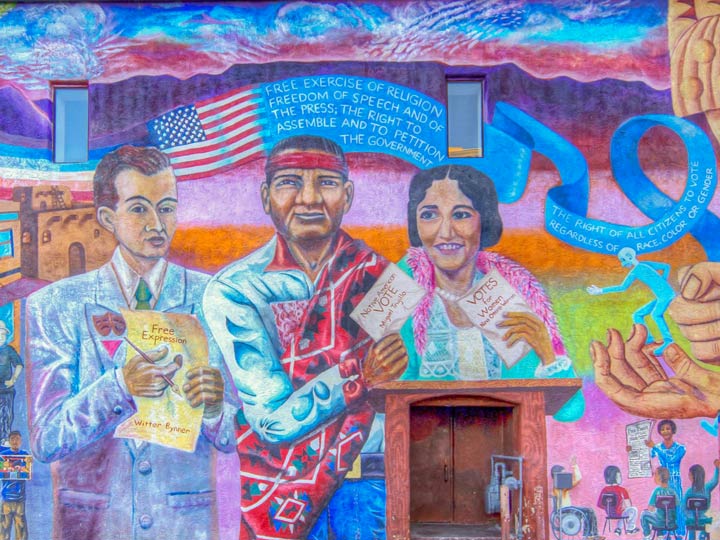
PASA POR AQUÍ
ADDITIONAL BLOG ARTICLES
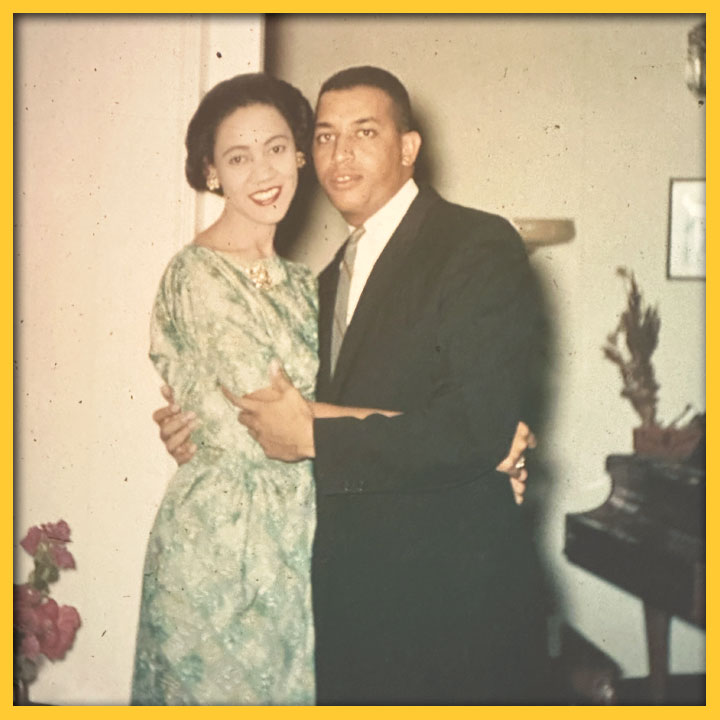
UP BY OUR BOOTSTRAPS; TWO LIVES IN RETROSPECT
By Finnie Coleman
I found myself fascinated with Dr. McIver’s transition from the stultifying hopelessness of the Segregation Era to the wistful hopefulness of the Civil Rights Era…
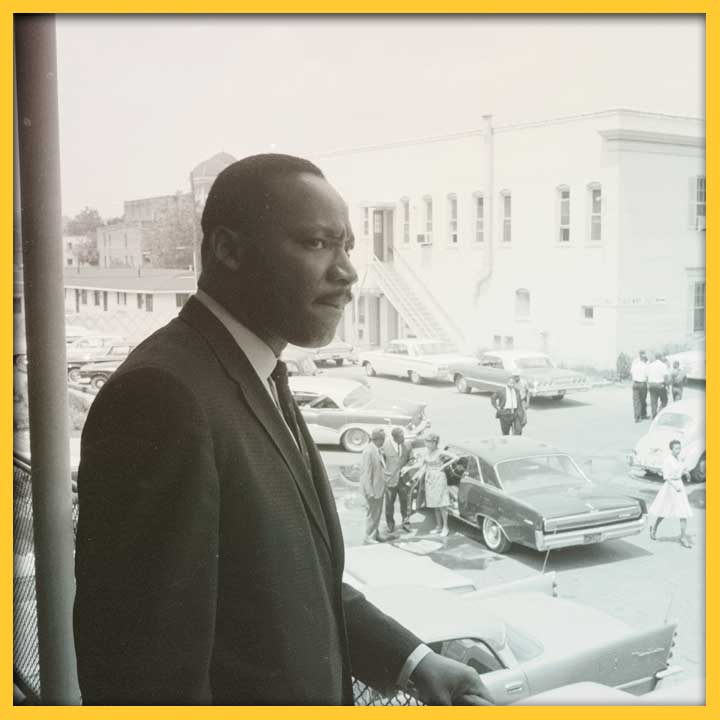
MARTIN L. KING, JR.’S DAMNING LETTER FROM JAIL
By Christopher A. Ulloa Chaves, ED.D.
“In the letter, King used a multi-disciplinary rhetorical approach that applied philosophical, theological, psychological, sociological, political, ethical and economic principles against systemic racism in Alabama…”

SPACESHIPS, RAY GUNS, AND LIFE LESSONS
By Melinda Snodgrass
“science fiction allows you to discuss difficult and fraught topics in what is a safe space and at arm’s length.”
SHARE:
DISCLAIMER:
Any views, findings, conclusions or recommendations expressed in this blog post/article does not necessarily represent those of the New Mexico Humanities Council or the National Endowment for the Humanities.
ABOUT THE AUTHOR:

DR. ANNA M. NOGAR
Dr. Anna María Nogar is Associate Professor of Hispanic Southwest Studies in the Department of Spanish and Portuguese at the University of New Mexico. Her research and teaching focus on colonial Mexico, New Mexican literary and cultural studies, and Mexican American literature. Her published books include the prizewinning texts Quill and Cross in the Borderlands: Sor María de Ágreda and the Lady in Blue, 1628 to the Present (University of Notre Dame 2018), A History of Mexican Literature (Cambridge University Press, 2016), and Sisters in Blue/Hermanas de azul (University of New Mexico, 2017), as well as Colonial Itineraries of Contemporary Mexico (University of Arizona Press, 2014) and the forthcoming A History of Mexican Poetry and A History of the Mexican Novel (both Cambridge UP). In fall 2021, she published El feliz ingenio neomexicano: Felipe M. Chacón and Poesía y prosa, a book on the work of 19th-century bilingual nuevomexicano poet Felipe Maximiliano Chacón, with the University of New Mexico Press.
